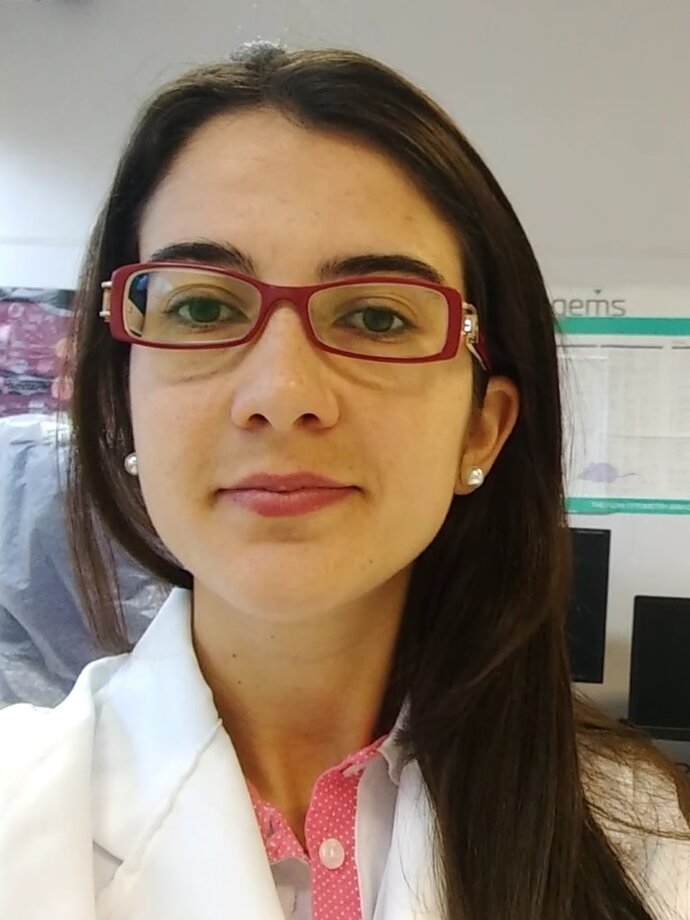
Dr
Renata Cristina
Fleith
Renata graduated with a degree in Veterinary Medicine at the State University of Santa Catarina (Lages, Brazil). Her fifth-year specialisation focused on immunopathology and diagnosis of infectious diseases affecting domestic animals, mainly in the pathogenesis of Mycobacterium bovis in naturally infected cattle. She then moved to the Federal University of Santa Catarina, (Florianópolis, Brazil) to join Daniel Mansur´s group as a Master’s student. There she focused on virus-host interactions, using a genome wide analysis to identify a highly conserved peptide in dengue virus envelope protein that was demonstrated to be crucial to viral fitness and antigenic in humans.
Renata then joined the Bioinformatics programme at the Federal University of Minas Gerais (Belo Horizonte, Brazil) for her doctorate and spent the third year of her PhD as a visiting student in the lab of Trevor Sweeney at the University of Cambridge. During this time, she reconstituted the oligomeric complexes formed among members of the human IFIT (interferon induced protein with tetratricopeptide repeats) family and demonstrated their impacts in IFIT1 antiviral function. Following her PhD, she was awarded with the Royal Society Newton International Fellowship, which was then hosted by the Sweeney Lab at University of Cambridge.
Renata became a member of The Pirbright Institute's Viral Gene Expression group in 2021 and is now investigating ubiquitin-dependent proteasomal degradation of interferon-stimulated proteins.
Renata’s main interest is the molecular mechanisms of host-virus interaction, focusing on innate intracellular response and how it affects the quality of adaptive immunity.